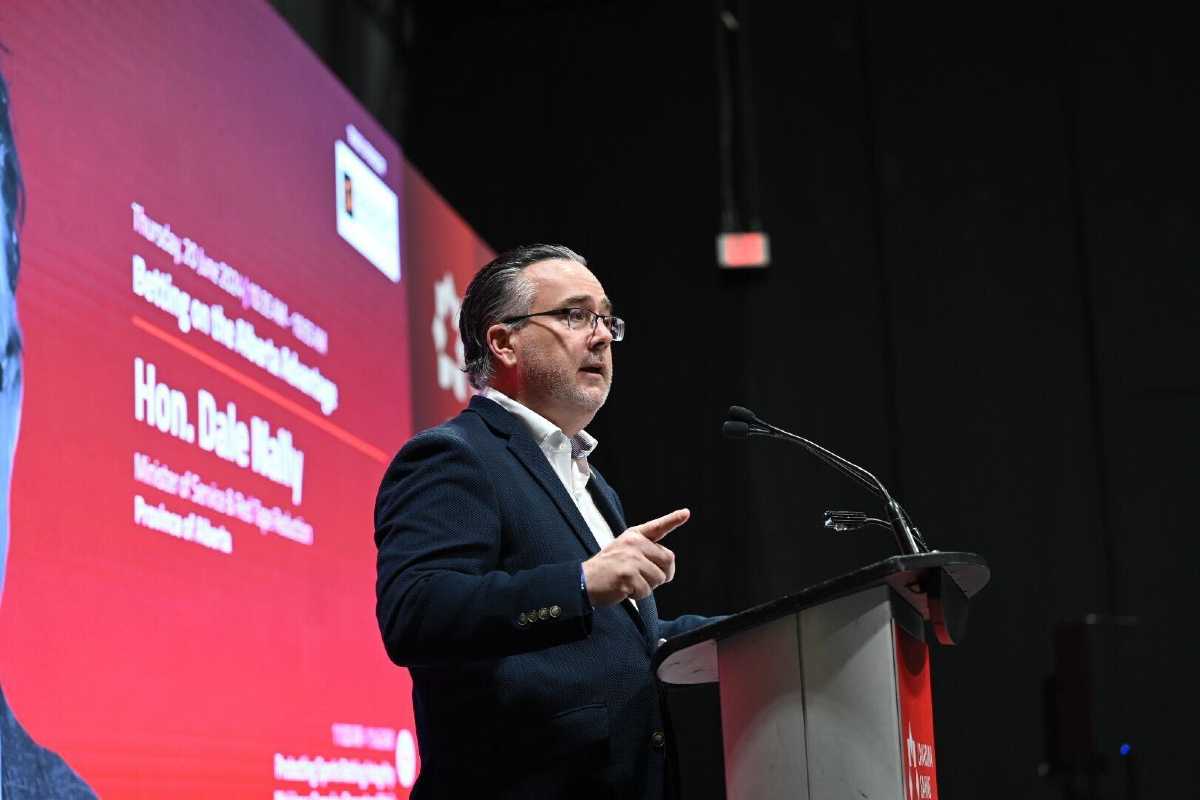
Alberta Minister confirms province will follow Ontario iGaming model
Province will launch open, free regulated market
Alberta’s continued journey towards a regulated online gaming market was a hot topic of discussion throughout the 2024 Canadian Gaming Summit. On Thursday, we got an update straight from the horse’s mouth.
Minister of Service Alberta and Red Tape Reduction Dale Nally told attendees at a crowded address to begin the final day of the Summit that the province will seek to replicate Ontario’s open free-market model with numerous operators welcomed into the fold.
“Let me tell you a little bit about what our gaming site is going to look like,” Nally told attendees in a crowded conference room. “It’s going to be very similar to Ontario, because we’re following their model. As far as I’m concerned, they build the roadmap. We’ll massage it a little bit but it’s been inspired by the experience in Ontario. It’s going to be an open and free market.”
A self-described “bullish” advocate of Alberta’s business prospects, Nally spoke at length about how the province’s low corporate taxes, the lowest in Canada and lower than 44 U.S. states, have precipitated huge investment in the province. He cited a recent study that predicted that the Alberta economy will grow at twice the pace of the national average. That, he stressed, is a golden opportunity for the gaming industry.
AGLC will not be regulators for the Alberta open market
The Alberta legislature recently cleared the legal runway to opening up a multi-operator commercial online gaming market in Wild Rose Country by passing Bill 16. That legislation recognises that the provincial government has the authority to conduct and manage gaming in the province separately and distinctly from Alberta Gaming, Liquor and Cannabis (AGLC), thereby allowing the potential for private online gaming operators to enter the market to compete with the lottery corporation.
Nally said told attendees that “we heard loud and clear” that commercial operators would not want to come to Alberta in a market in which the right to conduct and manage was held by AGLC. After Bill 16’s passage, that responsibility for iGaming will be the Justice Minister’s, not the commission’s. “So, anyone who comes to Alberta and invests in our products doesn’t have to share their data with the AGLC or Play Alberta,” Nally added.
Nally has been consulting with First Nations communities including Treaty 6, 7, and 8 First Nations in recent weeks and will continue to meet other reps as well as traditional casino operators and Racing Entertainment Centre operators throughout the summer. He emphasised that Alberta’s gaming market will hold “economic reconciliation” with First Nations close to its heart.
More than half of Alberta iGaming market is unregulated
Recent estimates from market data firm H2 Gambling Capital showed that while AGLC’s Play Alberta site has captured over 45% of the digital gambling market, close to 55% of the market is still held by unregulated sites. That means that more than half of online gaming activity is taking place without AGLC or governmental oversight without privacy and player protection protocols and on sites that do not return any process to the province.
“Numerous gaming providers have existed in Alberta for decades,” acknowledged AGLC VP of Gaming Dan Keene . “The goal has always been to bring safe and regulated options and capture that market share… We fully embrace what the minister is doing. Albertans are already participating, the market is already mature. Let’s regulate and provide those safe tools and put measures and compliance in place to get some rigour behind it and capture those revenues for the province.”
Alberta’s goals similar to Ontario’s
In Ontario, numerous reasons were cited for opening a regulated commercial online gaming market before it ultimately launched in April 2022. The core goal was channelisation; converting as many grey-market players as possible into users of regulated and monitored sites.
Multiple panelists at the Summit concluded that Alberta’s goals are similar, and Nally emphasised that the ultimate goal is an open, competitive, responsibly gambling industry.
Looking at the reports about the Ontario market, it’s clear why Alberta is looking to Ontario. Not only has iGaming Ontario (iGO) reported $2.4 billion in revenue from online gambling in the market’s second year, up 71% from year one, but a Deloitte report released on Wednesday found that Ontario’s regulated iGaming industry has so far generated more than $4 billion in economic value for the province, including raising $2 billion in tax revenue and sustaining nearly 15,000 jobs across gaming and a variety of related industries. iGO Executive Director Martha Otton noted at the Summit on Wednesday that while the gross gaming revenue growth is a big win for the province, “the bigger and better story is what gaming is doing for the broader economy.”
Ostensibly, a similar opportunity awaits for Alberta.
What’s the timeline?
Nally gave no indication of a timeline for Alberta’s regulated iGaming market opening, other than to say he would continue talking with stakeholders this summer.
Various panelists at this week’s Canadian Gaming Summit hinted that Alberta Premier Danielle Smith, who mandated Nally with the task of reviewing the province’s gaming opportunity, wants to open a regulated iGaming market sooner rather than later. Panelists suggested that a launch before the end of this calendar year is not out of the question, although they preached caution over banking on that timeline.